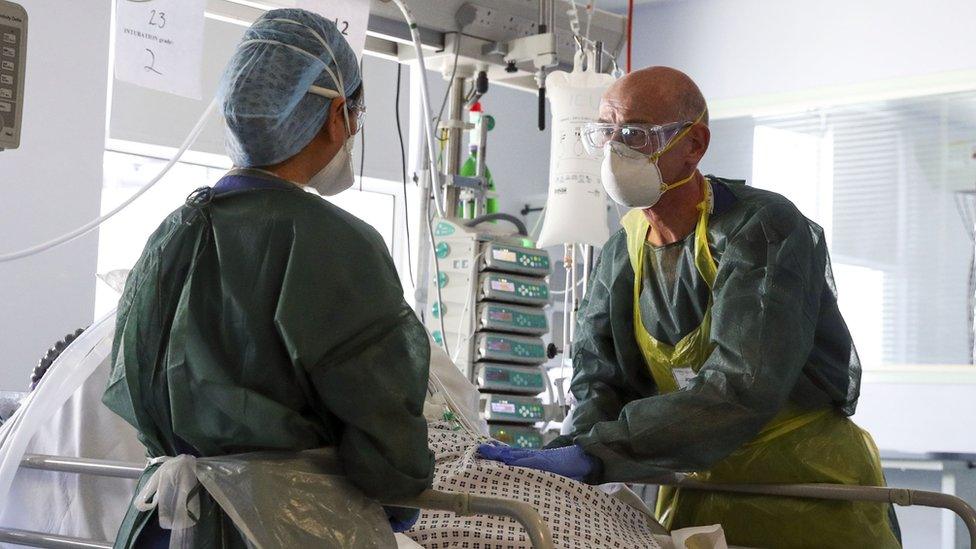Coronavirus in Northern Ireland: 100 days since first case
- Published
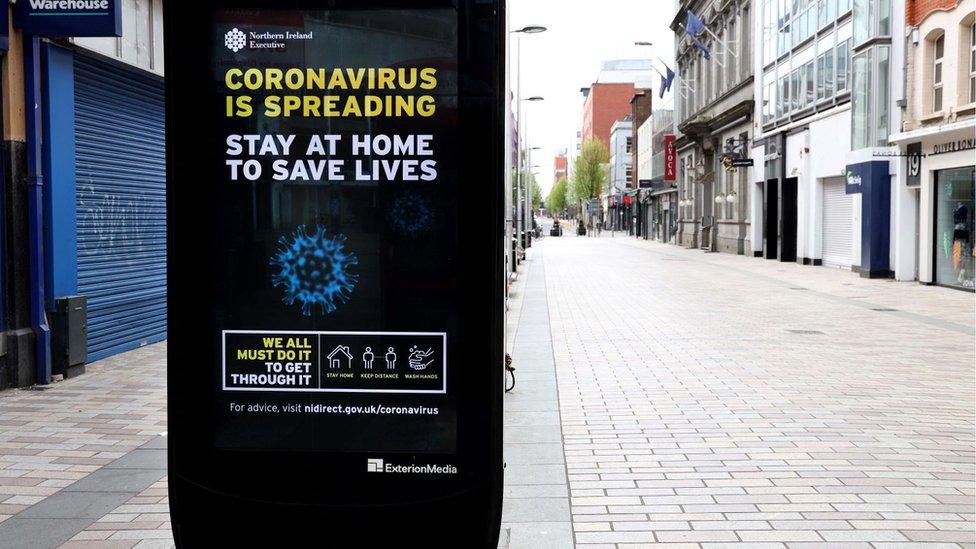
Belfast has been much emptier than usual, with most shops and restaurants now closed
It has now been 100 days since the first case of Covid-19 was confirmed in Northern Ireland.
Four weeks later, Prime Minister Boris Johnson announced strict new curbs on life in the UK, urging people to stay at home as much as they could.
Businesses closed their doors, remote-working and home-schooling became a new normal, video meetings and quizzes soared in popularity - and many people's lives changed forever as loved ones died.
BBC News NI looks back at how the pandemic has affected Northern Ireland.
'Biblical proportions' warning
Late February feels like a world away - many of us had broken our New Year's resolutions and were still going about our daily lives as normal, albeit with growing concern about ski trips or Easter holidays as the seriousness of the new virus became apparent.
Boris Johnson: "You must stay at home"
And then, on 27 February, the Public Health Agency reported the first confirmed case of Covid-19 in Northern Ireland.
The woman in question had returned from northern Italy with a child, travelling to Northern Ireland via Dublin. Italy was the first European country to impose a lockdown - following virus outbreaks in northern regions - on 9 March.
Ten days later, the PHA confirmed its first coronavirus-related death in Northern Ireland.
Health Minister Robin Swann warned the impending surge of coronavirus-related deaths could be "of biblical proportions".
Mr Swann said the "nightmare, worst-case scenario" was that in the case of an 80% infection rate, Northern Ireland's death toll could reach 15,000.
According to the latest report from the Northern Ireland Statistics and Research Agency (Nisra) - up to 29 May - that figure is 757.
The Department of Health, which releases daily figures, had recorded 528 deaths in total - more than 200 fewer - by the same date.
Nisra records all fatalities where Covid-19 is mentioned on a death certificate whereas the department's figures are mostly comprised of hospital deaths.
Government figures show that more than 40,000 people have died with coronavirus in the UK, but the Office for National Statistics (ONS), which counts death certificates mentioning the virus, suggests deaths had reached more than 48,000 by 22 May.
In the Republic of Ireland, the death toll stands at 1,670.
School's out for summer... in March
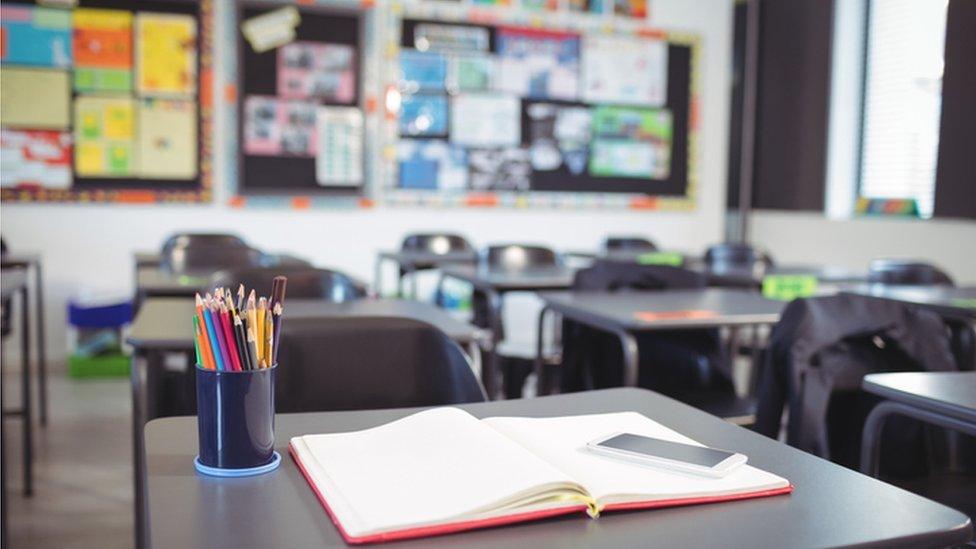
Education Minister Peter Weir says schools should begin a phased re-opening in the second half of August
The outbreak led to the cancellation of St Patrick's Day across the island of Ireland and the closure of schools.
For many parents, teachers and pupils the announcement on 18 March led to emotions of relief and trepidation.
Some schools had already decided to close earlier, while schools for children with special needs closed the week before over concerns about the effect of coronavirus on those with underlying health conditions.
The Republic of Ireland closed schools, colleges and other public facilities on 12 March.
Taoiseach (Irish prime minister) Leo Varadkar announced on 12 March that schools, colleges and other public facilities were to close
Life changed overnight for university students across the island of Ireland too.
Third-year nursing and midwifery students due to qualify within six months were told they would be redeployed to clinical care duties.
About 230 final-year medical students at Queen's University joined the medical register four months early.

James Cutlan, 28, became a junior doctor earlier than planned
By 3 April, Nisra had recorded 85 deaths.
Belfast's SSE Arena, which normally hosts concerts and sporting events, became an NHS staff testing site. The City Hospital's tower block was turned into a 230-bed unit for critically-ill patients.
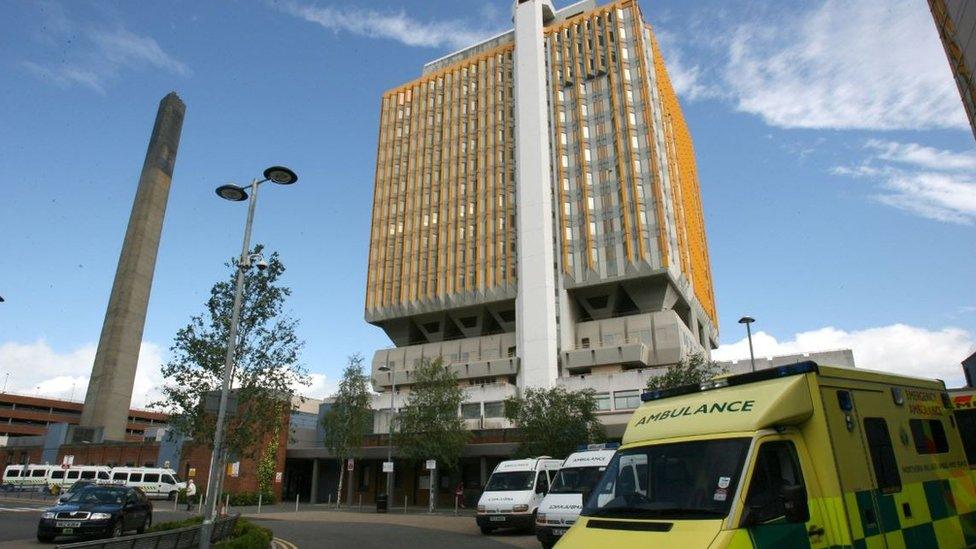
Belfast City Hospital's tower block became a 230-bed unit
The Nightingale Hospital was one of a number of temporary facilities across the UK to deal with an expected surge of coronavirus patients.
Health officials warned cases would peak between 6 and 20 April - and that Northern Ireland could see 3,000 deaths in a first wave of the pandemic - with a second surge expected later in the year.
Belfast's Nightingale Hospital was stood down - temporarily - on 13 May, having housed some 30 Covid-19 patients in intensive care during its busiest period.
Gloves and masks
Before the crisis, few of us had heard of PPE.
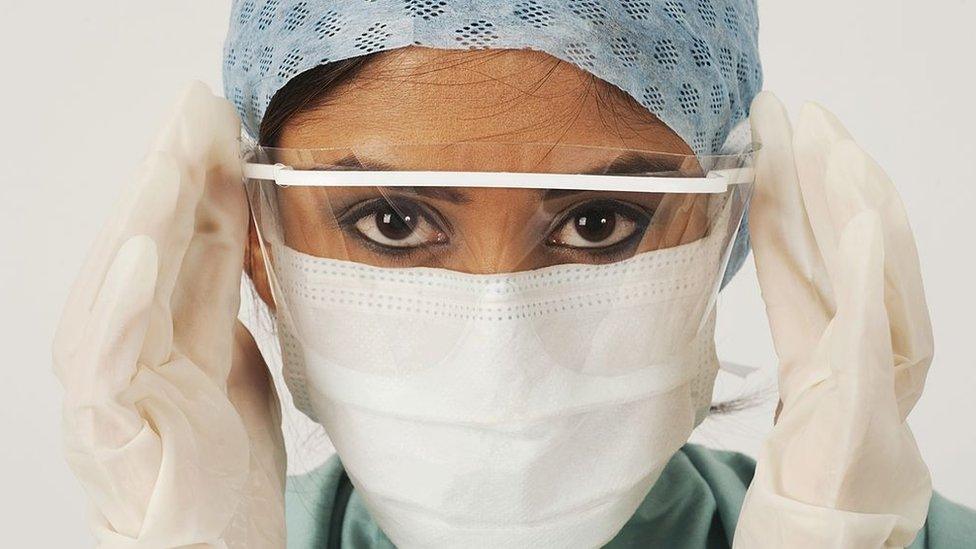
But we quickly became aware about concerns that Personal Protective Equipment - safety equipment that includes the likes of gloves, masks and aprons - was in short supply.
A joint order between the Republic of Ireland and Northern Ireland was not completed, despite Finance Minister Conor Murphy saying it had been agreed.
But a shipment of 5.5m pieces of PPE was delivered on 6 April, which which Robin Swann said satisfied Northern Ireland's demand.
Care home crisis
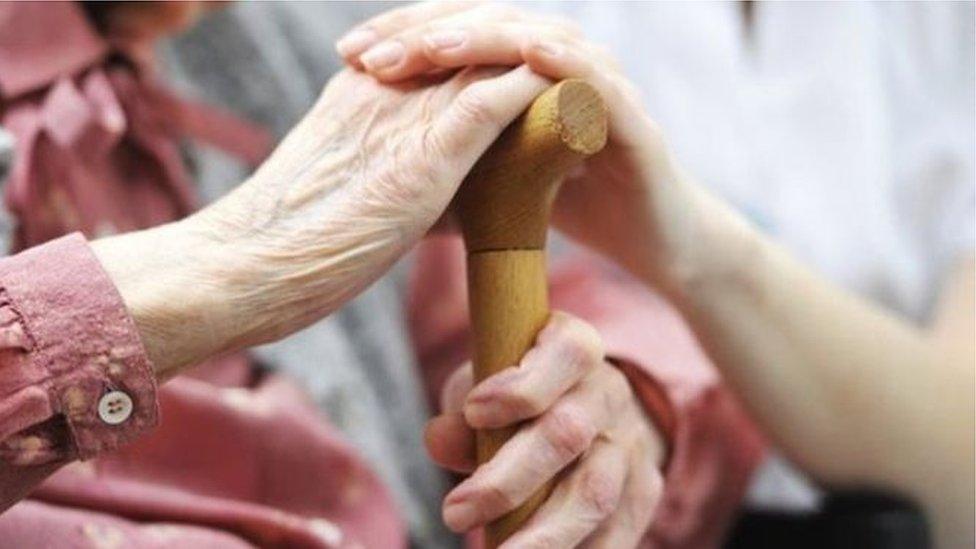
The majority of NI's coronavirus-linked deaths have been in care homes
Tackling the virus in care homes has been a major issue.
Nisra's latest official figures show there have been 328 care home deaths - 43% of Northern Ireland's total. First Minister Arlene Foster says the issue of coronavirus in care homes remains a "critical battle".
Saying goodbye to loved ones has been made harder as funerals are restricted to 10 mourners.
Furlough for long?
For many businesses, it has been a difficult and uncertain time.
While some were able to avail of the government's furlough scheme, others had to diversify. Many traders felt abandoned.
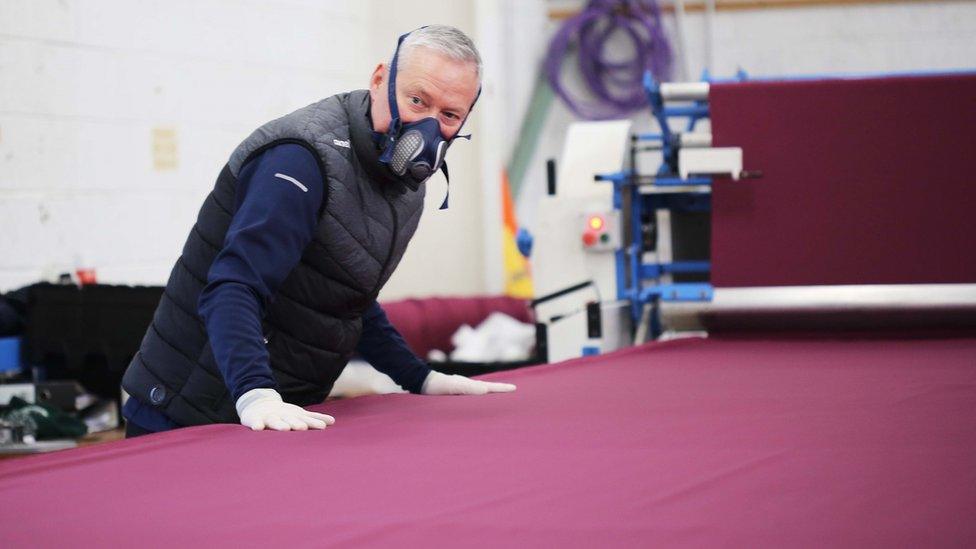
O'Neills sportswear factory has been making protective gear for the NHS
Some 200,000 people in NI are thought to be on the government's job retention scheme, external, out of 8.4m workers covered across the UK.
Stay home or stay alert?
On 10 May, the UK government changed its messaging to "stay alert, control the virus, save lives".
Allow X content?
This article contains content provided by X. We ask for your permission before anything is loaded, as they may be using cookies and other technologies. You may want to read X’s cookie policy, external and privacy policy, external before accepting. To view this content choose ‘accept and continue’.
But Northern Ireland, Scotland and Wales stuck with "stay at home".
Nisra had recorded 599 deaths recorded by 8 May and, as Northern Ireland enjoyed an early summer heatwave, the Stormont executive urged people to be patient about plans to ease the lockdown.
The Pathway to Recovery was announced on 12 May but, unlike plans announced in England and the Republic of Ireland, Northern Ireland's five-stage blueprint did not include a timetable.
First Minister Arlene Foster said lockdown-easing measures would be based on scientific and medical advice.
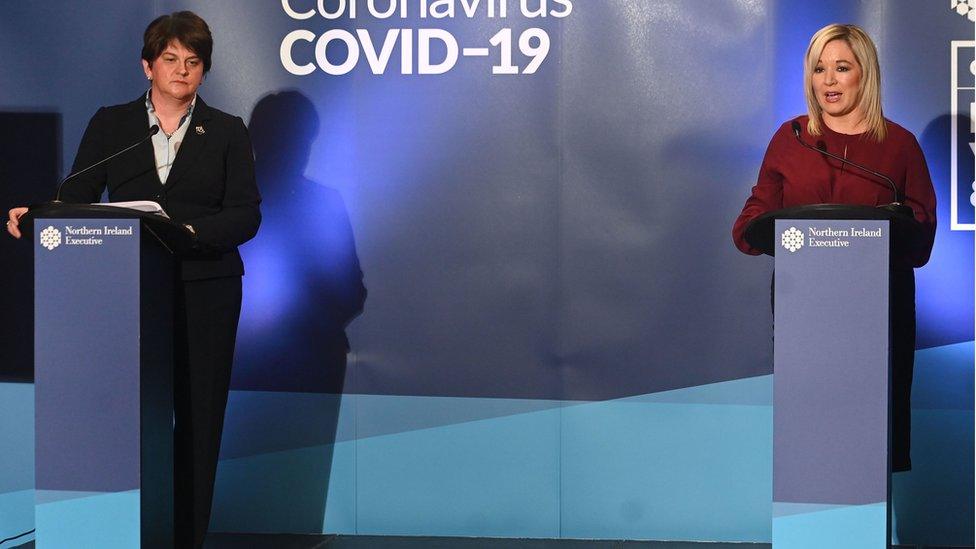
Arlene Foster (DUP) and Michelle O'Neill (Sinn Féin) said coronavirus was not "orange and green issue"
From the beginning of the pandemic, the DUP leader and her Sinn Féin counterpart, Deputy First Minister Michelle O'Neill, said that they would be united in their goal to save lives despite their "diversity of views".
In a joint interview with Sky News on 24 May, they said they had given up family time and missed the "ordinary things we take for granted".
"We're no different to anybody else, we find it as hard as everybody else," said Ms O'Neill.
Clap for carers
For the past 10 weeks, the place to be on a Thursday evening has probably been your front doorstep.
You may have taken a nervous glance out of the window at 19:59 to make sure you weren't the only household in the street venturing out with pots and pans to celebrate the work of frontline workers
People from across Northern Ireland have paid tribute to health and care workers by clapping every Thursday at 20:00
From donating to food banks and volunteering to deliver medicine, many people have pulled together to try to ease the strain on those struggling during the pandemic.
There's also been new life too, like little Jenson Jay Hooks who was born at Antrim Area Hospital at the beginning of May.
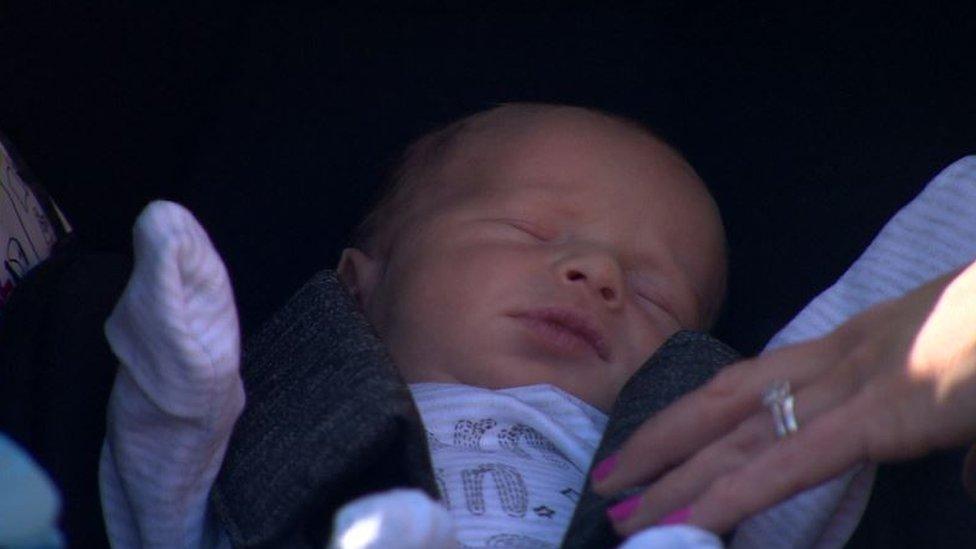
Jenson Jay Hooks has only been held by his mother and father
A new normal?
If the last 100 days have been anything but normal, it looks like the next 100 will see a gradual return to a normality of sorts - although life as we knew it may never be the same.
Northern Ireland was the first of the four UK administrations to roll out a contact tracing programme, as part of its plans to tackle coronavirus.
It aims to identify and alert people who have come into contact with a person infected with coronavirus.
Vulnerable people who have been advised to shield will be able to go outdoors again with members of their family from Monday.
Large retailers including car showrooms and shops in retail parks can also reopen, and outdoor weddings with 10 people present will be allowed.
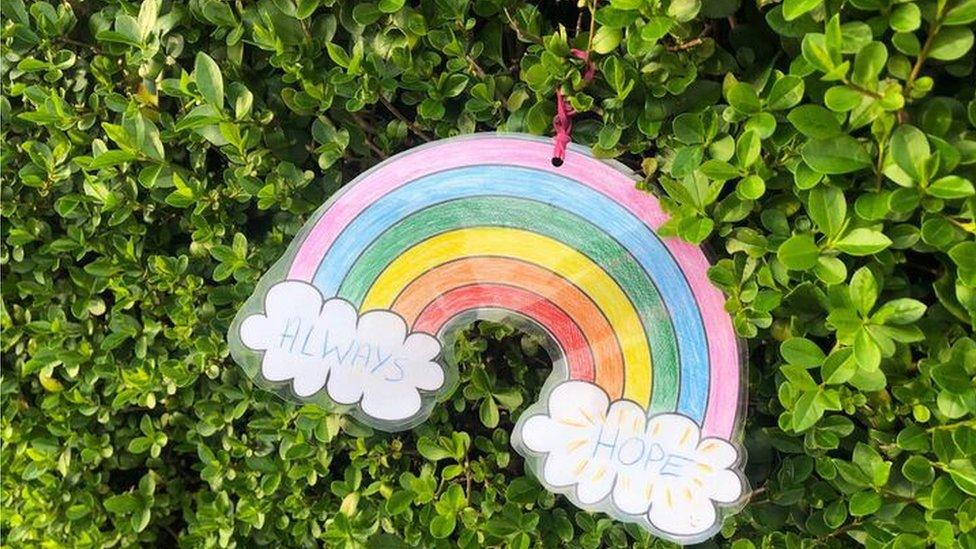
Rainbows of hope can be seen across Northern Ireland, like this one in Bangor, County Down
Currently as many as six people from different households can meet, as long as they are outdoors and adhere to social-distancing guidelines, and the executive has been discussing whether to let people meet indoors.
Hotels and tourist accommodation in Northern Ireland will be allowed to reopen on 20 July.
So, while we remember the hardships faced by many at the beginning of the pandemic, here's hoping there is at least some light at the end of all those rainbows.

A SIMPLE GUIDE: How do I protect myself?
AVOIDING CONTACT: The rules on self-isolation and exercise
WHAT WE DON'T KNOW How to understand the death toll
TESTING: Can I get tested for coronavirus?
LOOK-UP TOOL: Check cases in your area

- Published5 June 2020
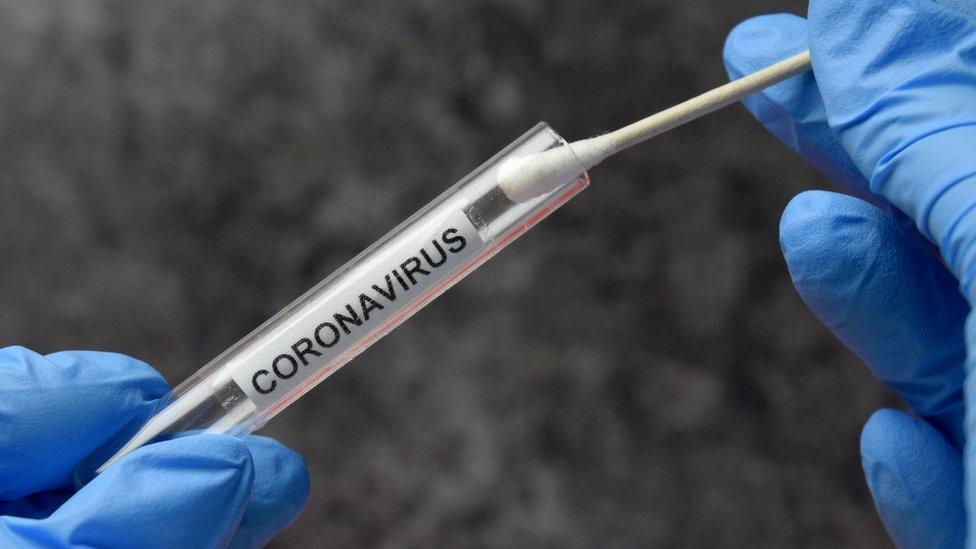
- Published5 June 2020
